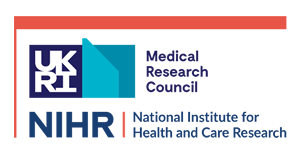Rationale
Tuberous Sclerosis Complex (TSC) is a genetic condition caused by a mutation in either the TSC1 or TSC2 gene, resulting in over-activation of the mechanistic Target of Rapamycin (mTOR) pathway, which in turn leads to the growth of multiple benign tumours. Subependymal giant cell astrocytomas (SEGA) are one such type of non-cancerous growth sometimes associated with TSC, occuring on the brain. It is estimated there are approximately 5,500 patients in England with TSC, an estimated 5-20% of whom have associated SEGA (NHSE everolimus commissioning policy, 2016).
Epilepsy is a particularly common symptom affecting the majority (reportedly 83.5%) (Kingswood JC et al., 2017) of people with TSC. Although anti-seizure medication can control seizures in a proportion of cases, they are not always successful and many people with TSC suffer from debilitating refractory seizures.
Medicines repurposing means using an existing medicine in a new way – for example, to treat a different condition. Metformin has been identified as a potential candidate for repurposing to treat TSC. Metformin activates adenosine monophosphate-activated protein kinase (AMPK) and consequently inhibits the mTOR pathway (Amin, Lux and O'Callaghan, 2019); it is proposed it may improve symptoms in TSC via this mechanism. As metformin is a well-established drug in diabetes, it is known to have a favourable side-effect profile when compared to other mTOR inhibitor therapies and, notably, is known to be safe in pregnancy. It is also readily available at low cost and can be administered without the need for blood tests and therefore has the potential to be a valuable addition to the TSC care pathway, if efficacious.
An RCT funded by the NIHR Research for Patient Benefit (RfPB) Programme (Amin et al. 2021) looked at the effect of metformin in TSC on renal angiomyolipomas (n=51), SEGA (n=27) and seizures (n=21). Although the primary outcome (renal tumour size) was not significant, this trial demonstrated a statistically significant effect in reducing the volume of SEGA (+3.0%, IQR -22.8% to +27.7%, for the placebo group and -20.8%, IQR – 47.1% to - 5.0%, for the metformin group) and in reducing seizure frequency (3.1% reduction in seizures in the placebo group and 43.7% in the metformin group, corresponding to a 40.6% difference in response, 95% CI -3.1% to +84.2%, p = 0.03). As only a small number of patients were involved in these comparisons, a larger confirmatory clinical trial is needed to test the efficacy of metformin in TSC, alongside considering the appropriate dosing strategy.
Through this call, the MRC-NIHR EME programme is inviting applications to conduct further research regarding the therapeutic value of metformin in patients with TSC. The proposed trial should aim to definitively establish whether or not metformin is safe and efficacious. If the findings are positive, the Medicines Repurposing Programme would subsequently aim to facilitate an application for a licence variation from the medicines regulator, MHRA.
Research Question
- Can metformin improve outcomes (such as improving seizure control and reducing the volume of subependymal giant cell astrocytomas [SEGA]) for people with TSC?
- Patient Group - The call seeks to define the TSC patient population most likely to benefit from metformin and therefore must include a strong scientific rationale around the patient population of interest, and the approach to inclusion and exclusion criteria.
- Intervention – Metformin. The formulation and optimal dosing strategy must be defined as part of the research proposal, and supported by scientific justification and/or clinical data. Where justified, EME may support an adaptive design to refine these aspects of the protocol during the study.
- Applicants should define and justify the place in the treatment pathway that metformin is intended to occupy, with reference to existing treatment guidance and commissioning policies.
- Comparator – Placebo, plus usual care (applicants to define and justify).
- Primary Outcome: Use of validated endpoint(s) that robustly capture safety and patient benefit in the TSC population (such as improving seizure control and reducing the volume of SEGA), applicants to define and justify.
Proposed study design
A randomised controlled trial recruiting TSC patients across multiple sites in the UK is preferred.
Anonymised study design details will be shared with a regulatory representative from the Medicines Repurposing Programme Steering Group at Stage 1. Applications will also be reviewed by NHS England at Stage 2. Reviewer comments will be shared with the EME Funding Committee, to enable comprehensive feedback.
For the successfully funded study, formal scientific advice MUST be sought from the MHRA on the proposed clinical trial protocol in order to assess the suitability of the research for informing potential future application(s) for a licence variation. The Medicines Repurposing Programme will provide costs for and support the study team with this process – any queries should be directed to england.repurposing@nhs.net.
Call Scope
The MRC-NIHR Efficacy and Mechanism Evaluation programme will only fund one project from this call and applications will be considered in competition.
The inclusion of hypothesis-testing work around the mechanism of action of metformin in TSC is welcomed, where this is relevant to the primary research question and has the potential to ultimately inform and improve the use of the intervention.
Although there are no upper limits for study cost or duration, for all applications value for money is the key consideration.
While collaboration with industry is welcomed, the proposed choice of formulation to be evaluated must be justified by applicants, based on the evidence requirements and rationale for this call.
Process for Assessment of Applications
Applications to this call will follow a two-stage application process.
Following a funding decision, the successful research team will be expected to establish a Research Steering Group, to include the Medicines Repurposing Programme.
Additional Information
For information and guidance around repurposing studies, applicants may wish to refer to the LifeArc and MRC Repurposing Medicines Toolkit.


